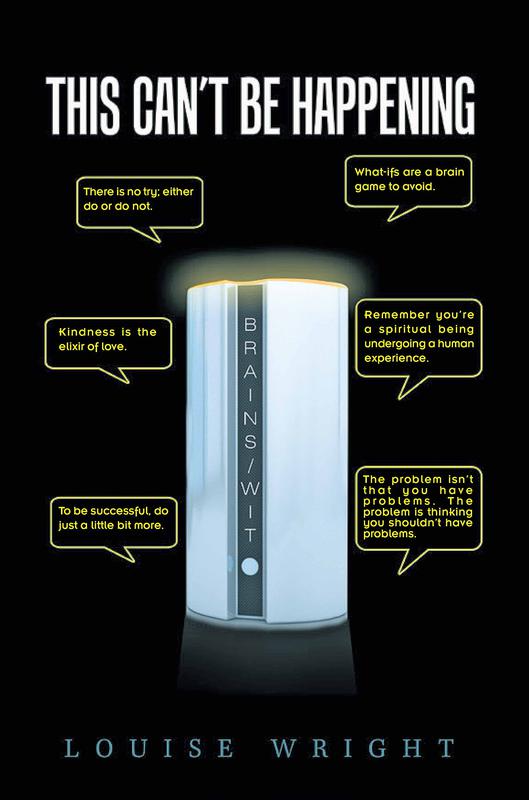 | ||||||
READ THE FIRST FEW PAGES OF
THE BOARDERS AT HAWK'S NEST
A NOVEL BY
LOUISE WRIGHT
CHAPTER ONE
My mother was a no-nonsense woman. When I look inward trying to get a clear image of this remarkable woman, I see her in motion, always busy fixing meals, cleaning, changing bed linens, hanging clothes. Her looks were stern like her attitude – her dark brown hair drawn back into a bun that framed suspicious large light brown eyes, a slightly hooked nose, and a straight mouth. She wore no makeup and her dark dresses fell to the calf; a newer dress in the same style on Sundays. Mother had a stocky physique and a generous heart. I never doubled my mother’s love, which was her greatest gift to me, since the way we see ourselves is through our mother’s eyes.
Hardworking and unpretentious, Mother viewed all actions as black or white, right or wrong. Her answers to life’s riddles were restricted to the current minister’s teachings from the pulpit at Saint James Baptist Church. Resting was not allowed until the end of the day after all the chores were done. In her own mindset, she had committed only one sin; and this youthful stray from her unrelenting code of conduct set for herself and others, must have convinced her any pleasures gotten from an amoral act were not worth the consequences.
The most important and influential person in our lives is our mothers. Their way of viewing life becomes our way of seeing the world until we start seeing the cracks in their foundation. There comes a time when we began believing we know more than they do and rebel against their limited set of principles. We find out that their journey is not our journey as we struggle to find the right path for ourselves – our own direction toward the things that have meaning and value to us. Of course, we cannot see into the future how we will become our own mothers again when we raise our children, helping these youngsters create a nest of security before they also journey toward their own destinies. I recognize now the value of my mother’s ways, and quickly forgive what I saw as her only shortcoming – she planted roses and promoted their growth, but did not take the time to enjoy them.
But when I look back on the person who shaped my life the most, I see another more gentle face. Claire was my favorite of all the people whom have shown up in my life. Her mental presence makes me smile; yet I still feel a tinge of guilt. My role in this lively lady’s life was one of naiveté as I did not understand what was going on during my youth until many years later after everything had happened.
Claire McKinley was the one of my mother’s boarders who got run right out of town – dismissed from our community. Miss Claire was my friend and my teacher. To this day, when something disconcerting occurs in my life, I do not think of what my mother would do or think in this particular situation. Instead I ask myself, how would Claire interpret this experience?
The only image of my father I can pull up is a photographic unexpressive semblance from a faded framed portrait that my mother kept on her dresser. He was so quiet. I cannot recall any personal interaction with this mystery man before he left home when I turned five years old. The first four years of my life my father served in the War far away from home. I remember this handsome masculine face with a slender body in a white shirt and dark pants sitting alone in the brown upholstered chair in the parlor. I notice a drink in his hand. If I enter the room and make any noise, he yells for my mother to come get me. When I complained once to Claire about my father’s absence from my life, she said my lesson there was to learn how to hear the words that people don’t even know they want to say.
When father lived with us, everyone said I looked like him and took after his side of my family. I would stare at myself in the dresser mirror glancing at his picture to try and find this likeness. I had his straight nose, his dark brown eyes, the oval shape of his face, and his slender physique. My hair and eyebrows were the darker brown of Mother’s instead of his lighter shade of brown.
I start my account of events after Father left. Mother had inherited this roomy, box-shaped house with a wrap-a-round porch from her family. One thing my father, a licensed plumber, did, probably because he knew he was going to leave us, was install plumbing so each huge bedroom had a separate bath. This was not the case with a few of our neighbors in 1947, where outdoor privies were still part of some backyard landscapes with scary nighttime dashes. The house stood on a hill at the edge of town just before the terrain changed to woods and then an occasional farmhouse with a fading barn nearby surrounded by huge rectangles of cultivated crops or fenced green pastures with grazing cattle and horses. It was the size of the house that made it stand out, not the architecture; just as the largeness of this property gave the appearance of wealth where there was none. A dirt driveway, lined with cherry trees, began at the main road and led up the hill to one side of the porch vanishing into the roots of two large pine trees. This small town of less than 2,000 inhabitants was Sweet Point in the foothills of western Virginia where the major industry was a saw mill located at the other end of town.
Mother took on the responsibility of family that Father shunned and advertised room and board in the local newspaper. There were six bedrooms in this establishment. Mother and I took the two smaller rooms on the left side of the second floor, and she rented out the rest. Every person who answered the advertisement was accepted as there were exactly four people who showed up at spaced intervals.
The first to show dressed in a dark suit, white shirt, and muted tie walking rapidly up the hill was Mr. Vaughn. He was of slight build with a thick head of dark brown hair that bounced with his quick steps. He had the town newspaper in his hand folded to the advertisement and waved this object as he introduced himself with his profession.
“Gerald Vaughn. I teach history at George Washington High in town. I’m looking for a room with meals.”
Mother had figured over a notepad how much to charge each boarder – a dollar a day for two meals, a dollar a day for the room. As she scrutinized Mr. Vaughn, she added a dollar for laundry each week making the total $15.00 a week. Multiplying this amount times four boarders, she felt like she could make a living for us.
There were rules of conduct she wanted to impose on these boarders who would be sharing our home such as no entertaining the opposite sex in their rooms, no smoking and no drinking. But she recalled how her husband had been both a smoker and a drinker, and she was too embarrassed to mention anything about sexual activity to a man.
So she gave the price of the room and board, and asked to show Mr. Vaughn the four rooms that were available. She opened each door on the second floor and gave her opinion of the peculiarities of each room (the view from the window, the furnishings within). She waited as Mr. Vaughn inspected each and returned to the hallway. He said the room with a desk and a bookshelf was nice.
Mr. Vaughn had little to say during the tour. When he did converse, his deep brown eyes immediately looked downward magnifying his bushy eyebrows and dark lashes. Mother offered him coffee in the kitchen which he turned down.
But at this time, he finally spoke, “I would like to move in right away if that is convenient for you, Mrs. Martin. I can bring my clothes and books over tomorrow after school lets out.”
“Yes, sir,” Mother replied. “Dinner will be served at six o’clock each evening, breakfast at seven in the morning. Lunch is not included.”
With a nod, Mr. Vaughn took money out of his front pants pocket and handed it to Mother. Then he rushed away with the same quick steps. Mother fingered the two bills, holding them up before her face, inspecting each one. It was the first money she had ever made by her own endeavors.
“Mr. Vaughn,” she addressed to me as I observed her, “is just the type of boarder I had in mind – such a quiet, cultured gentleman.”
For her first compensated dinner the next evening, Mother served a roast, mashed potatoes, her home-made biscuits, and two vegetables seasoned with bacon fat. She passed these dishes too often over to Mr. Vaughn’s side of the table and asked too many times if he enjoyed the roast.
Dinner reminded me of previous meals with Father with Mother doing most or all of the conversing. Other than a comment from Mr. Vaughn about having just the right amount of space for the things he moved in that afternoon, the only dialogue at the table was Mother’s explanation about our place being named Hawk’s Nest.
“Every year, in the spring, one hawk makes her nest under the eaves above the attic,” Mother began. “It’s unusual because most hawks nest in the tallest trees they can find. And with all the farms this side of town, it’s amazing that any of these birds remain since the farmers run for their guns the moment they see one overhead. They think every hawk is going to snatch up their chickens.”
It showed in her voice that Mother had a soft spot for these large birds of prey as she continued. “Hawks are more useful to humans than harmful. They mainly eat small rodents, snakes and large insects. It’s a shame there is such a prejudice against them.”
Mr. Vaughn, with the downcast eyes, would have to listen to this discourse on hawks three additional times during the next two weeks as each new boarder joined around our table.
Four days later, Deucalion Bauer showed up in a noisy Ford pickup truck. Long legs descended from the cab and the door was left ajar as he looked up at this big house and shook his fair head. I was sitting outside on the porch, so he addressed me.
“Little ma’am, is this the house taking in boarders?”
“Yes, sir,” I answered, jumping up. “I’ll get my mother.”
Mother was already at the door alerted by the loud engine. She wiped her hands on her apron as she held the door aside for Mr. Bauer to enter. He hesitated, unsure of whether he should precede Mother or let her go first.
“Ma’am, I better ask first how much you charging for a room and meals here,” he said as he held back.
“Fifteen dollars a week,” Mother replied. “And that includes doing your laundry,” she added.
“Well, I think I can afford that,” he said, as he finally went into the house ahead of Mother.
He resembled the high school boys who lingered around the main street of downtown, like he had just gotten a growth spurt and his body needed additional time to fill out. He wore work clothes – jeans and a short-sleeve plaid shirt. This tall youth, with blond hair cut military short, appeared awkward and shy, so Mother carried the conversation by asking questions.
“Do you work around here?” she asked.
“Yes, Ma’am. I’m a farm hand and I’m good at odd jobs. I’ve got a few regulars that keeps me going. You may know them – Mr. Lipscomb and Mr. Sutter right down the road. It used to be the farmers would give you a meal and put you up in their barns. But they don’t do that anymore. So I needs a place to stay.”
“What is your name?”
“Deucalion Bauer, Ma’am. I’m from these parts, but my family moved away when I was in the service.”
“How old are you?” This question popped out since he looked so young. Mother had been intimidated by Mr. Vaughn at the point when he introduced himself as a teacher. This young man represented a kid brother to her, someone with whom you didn’t have to watch your manners. She did add, “If you don’t mind my asking.”
“No, Ma’am. I’m twenty-three. Went into the army before I graduated from high school. Got out bout a year ago and came back here and started working around.”
Mother showed Mr. Bauer the three remaining rooms. She could tell from the wide-eyed look on his face he was impressed by the large size of the rooms and the fact that each one had its own private bathroom.
“I expect payment at the beginning of each week – every Monday morning.” Mother emphasized this because she questioned this farm worker’s ability to pay on a weekly basis. Crops were seasonal and she wanted him to realize that the rent would be due year round.
Mr. Bauer relieved her mind by paying for four weeks ahead. He had probably been saving his money. And his desire at this moment for a nice room, a bath, and the possibility of a good meal made him want to insure his acceptance here as a boarder.
“I’ll try to keep the rent paid way in advance,” he said as he descended the stairs. “I have some things in my truck. I’d like to start today.”
“Which room do you prefer?” Mother asked to finalize the deal.
“Oh, Ma’am. They all looks good to me. You pick out the one you want me to have.”
Another personality came to the house four days later. This time the vehicle was a weathered Chevrolet sedan (its original color would be a guess) that sounded almost as loud as Mr. Bauer’s Ford truck.
The first thing noticeable about Johnathan Riley, Jr., was his size – height a little over six feet and a body that had filled out with muscles. His voice, like his presence, was louder than the other two men before him.
He addressed Mother, “I’ve just made foreman over at the saw mill. I’m tired of the run-down rooms on that side of town and want something nicer. And this place looks real nice. I’m hoping some decent meals come with a clean room.”
Mother stared at this giant with reddish hair and green eyes and nodded.
“And I’m a real good guy – won’t cause you any trouble,” he added, approaching with his hand extended.
Mother looked confused, not used to shaking hands with men. He noticed and pulled his hand back.
After choosing from the remaining two rooms, Mr. Riley came back to his car and started unloading his trunk of several oversized bags and a sizeable box. He noticed me watching him from the side of the porch.
“Hey, Girlie,” he called over to me, “Why don’t you take this box up for me?”
I looked at the size of the box and giggled. He broke out in a jovial laugh.
“Good,” he said, “you knew I was kidding, didn’t ye? Why, I could pack you up inside this box and mail ye to Ireland where you could play with the leprechauns.”
“Who’s the leprechauns?” I asked, moving toward this humorous big guy.
“The little people that only children like yourself can see. They’re not too fond of busy adults, so they play jokes on us like hiding our clothes and valuables.”
“That’s not true,” I said.
“Have you ever been back in the woods,” he gestured toward the forest to the right of the house, “And heard what sounds like a little hammer hitting on wood?”
“Yes.”
“Well, that’s the little fairies building something.”
“No,” I stated emphatically. “That’s just a woodpecker pecking away at a dead branch to get to the insects inside.”
“You think so,” he answered, with a wink.


